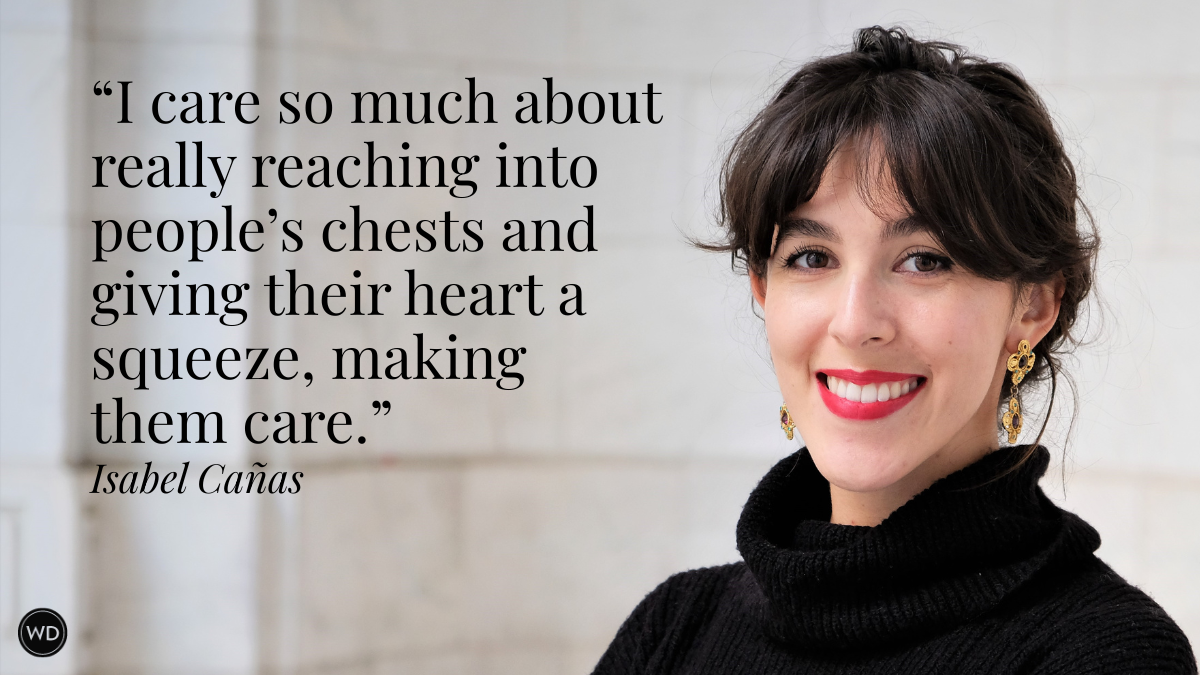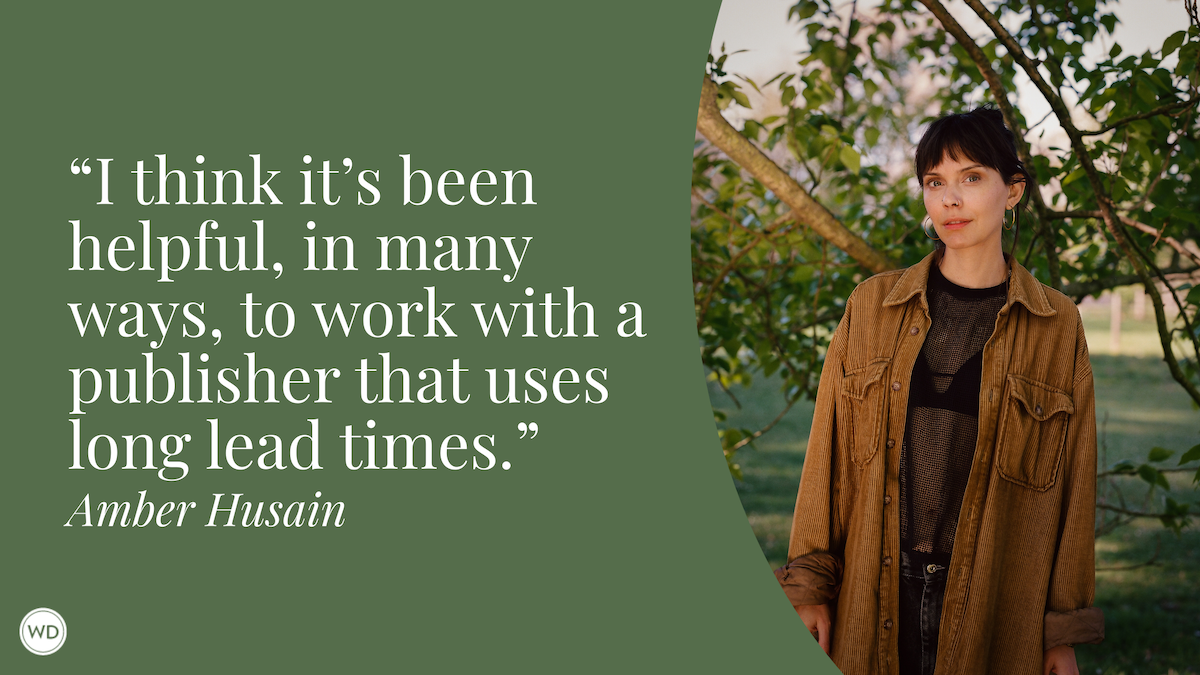How Being the Grandson of Literary Legend J.R.R. Tolkien Has Affected My Writing Career
Author Simon Tolkien discusses how being the grandson of literary legend J.R.R. Tolkien has affected his own writing career.
It’s hard to look back over one’s life and make sense of it. There’s a temptation to find ready-made explanations for how things have turned out, when the truth of cause and effect is invariably more complex and is often impossible to pin down. The past is indeed another country, often shrouded in mist. All we can do is look for clues, and in my case two unusual ones shine out like beacons: that I was born the grandson of one of the most famous and well-loved writers of the 20th century and that I never wrote a word of fiction until I was 41, even though the seven novels I have had published since clearly show that I had the capacity to do so.
I have no doubt in my mind that these two elements of my history are linked, but how is a harder question to answer. This piece is an attempt to reach back through time to the very different person I was in my younger days, in the hope of understanding how the Tolkien legacy affected my writing journey.
My grandfather died in 1973 when I was 14 years old. He had been an important figure in my childhood, both in Oxford where I went to school, and in Bournemouth where he retired to live with my grandmother in the late 1960s. They bought a house there, but spent most of their time in a hotel called the Miramar on the seafront where I often stayed with them, traveling down on the train. My grandfather spent a lot of time with me, playing word games and walking on the beach and answering my many questions about The Lord of the Rings which I first read when I was nine. Both my grandparents made me feel important and special, and I grieved when they died.
I had a troubled personality in the first part of my life. I worried too much about what people thought of me and my lack of confidence made me self-conscious about the way I expressed myself: Sometimes in conversations I found myself preparing what I was going to say before I said it!
This was hardly fertile ground for becoming a novelist where the words need to flow, and my grandfather’s epic storytelling set the bar far too high for me to think that I could follow in his footsteps. I was certain of very little, but the belief that I couldn’t write fiction became like an article of faith!
I qualified as a lawyer and worked in the London criminal courts, first as a solicitor and then as a barrister, which I enjoyed very much, but something was always missing. I felt envious of those who could make something that existed independently of themselves, whether it be a house or a painting or a book. I was locked up and had no key to get out of my self-imposed imprisonment.
But then everything changed: I turned 40, the Millenium arrived with its urge to new beginnings, and Peter Jackson’s films of The Lord of the Rings began to be released, elevating my grandfather’s fame to stratospheric levels, and proportionately increasing my sense of being defined by my relationship to him. What was he like? What would he have thought of the movies? Questions that I didn’t want to answer because I craved an identity of my own.
And for the first time, I felt I had the necessary confidence to try and achieve it, born of my hard-won experience as a trial advocate. But how? I asked myself, and the answer came shooting back, breaking through all the old certainties: Write! You can do it! Write!
On the weekends between trials, I wrote a comic novel about a repressed lawyer working in a dysfunctional firm and thought it was a masterpiece when it was, of course, anything but! My Tolkien name got me through the door of some literary agencies, but not for long. Soon, the rejections came back under cover of the stamped addressed envelopes that I had enclosed with my submissions, and I was faced with the choice of giving up or starting over. Except that it wasn’t a decision I had to make: The force that had kept my creativity repressed for so long had reversed direction and now propelled me forward, making it impossible to stop. And I think too, that beneath the bruising disappointment, I understood that I was going to need to learn to write, just as I had learned my trade as a lawyer in the courts, cross-examining witnesses and making speeches to juries.
So, I began my new career, beginning with courtroom dramas where I felt comfortable with the highly structured language, and then shedding that skin to write crime thrillers, before moving onto historical fiction, and in the process evolving from novels in which the characters are vehicles for the development of the plot, to ones in which the personalities and interactions of the characters determine the arc of their stories, just like in life. They became like friends, existing independently of me, and that was a great joy.
It was a long road I traveled with serious setbacks along the way, but slowly my confidence and sense of identity as a writer grew, and with it the way in which I thought about my grandfather and his legacy. I remembered the intense value he attached to literary creation, and I began to feel inspired instead of overshadowed by his extraordinary achievements.
In my 2016 novel, No Man’s Land, I tried to bring to life the experience of the British soldiers like my grandfather, who fought on the Western Front in the First World War, and as I wrote in the dedication, I felt that the book honored his memory. And now, in my new book, The Palace at the End of the Sea and its sequel, The Room of Lost Steps, I have created a fictional portrait of the 30s on both sides of the Atlantic, a decade of hope and belief that turned to ashes in the defeats of the Spanish Civil War and the horrors of the Second World War. A decade in which my grandfather found out like so many of his generation that the battle he had fought in the trenches and out in no man’s land would not be ‘the war to end all wars’, but instead would become the precursor to an even more terrible conflict in which he would have to send his sons away to fight.
My new books are about a young man coming of age and volunteering to fight for a cause he believes to be just, following the beacon of courage, just as Frodo did in The Lord of the Rings, and subsequently experiencing like Frodo, desolation in a land of shadow. Now, 25 years later, I feel that my grandfather’s literary legacy is something I can truly celebrate, and I am proud to call myself his grandson.
Check out Simon Tolkien's The Palace at the End of the Sea here:
(WD uses affiliate links)








